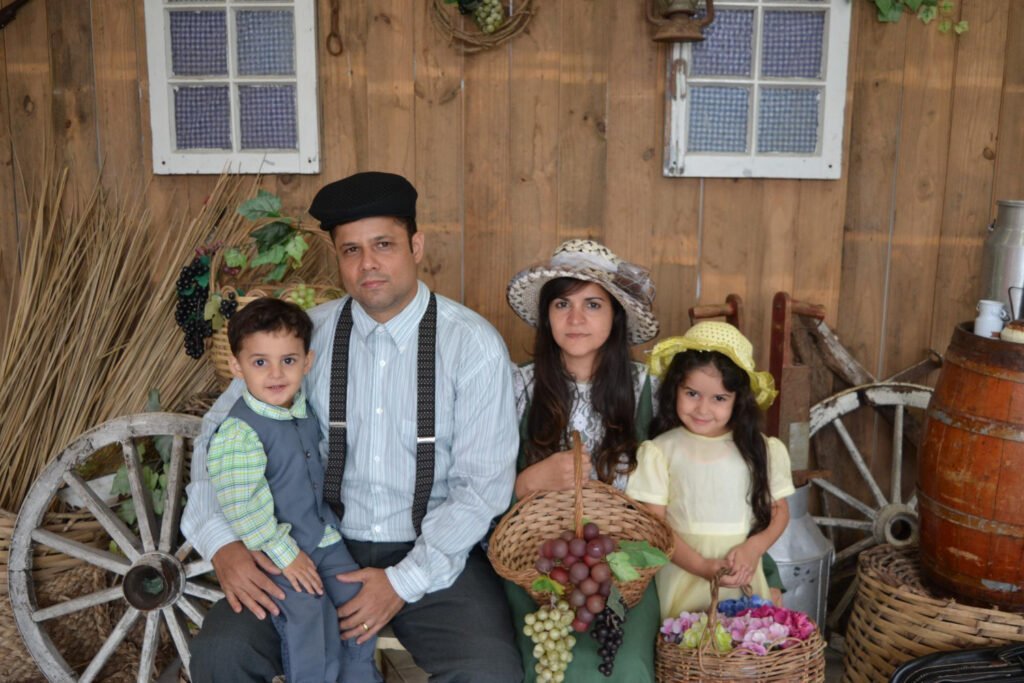Learning About Traditional Parenting: The Timeless Methodology That Could Be Harming Your Child
Are You Stuck in the Past With Your Parenting Style?
Traditional parenting techniques have long served families well, providing clear guidelines and high expectations with ease. But in today’s ever-evolving society, can this outdated method hinder rather than assist your child? Let’s examine its effect on child development before considering if an overhaul might be in order.

Critical Characteristics of Traditional Parenting Style
The traditional parenting style isn’t just about raising obedient children and creating a structured environment where discipline reigns supreme. Here’s what sets it apart:
- Strict Rules and High Expectations: Traditional parenting style relies on setting clear rules that children must obey without question or questioning from any adult in charge, setting clear expectations to teach respect and work ethic early in life. Parents who adopt this parenting style typically believe that setting high expectations will result in successful future outcomes for their offspring, but is such an approach too rigid in today’s dynamic world? For strategies that blend structure with emotional support, consider No-Drama Discipline, which offers a compassionate yet effective method for dealing with challenging behaviors.
- Cultural Foundations: Parenting styles rooted in cultural norms and practices handed down from generation to generation have shaped traditional parenting style for generations, often serving to preserve family honor and uphold communal values. For instance, traditional East Asian societies that prize academic success may adopt strict study schedules emphasizing perseverance as part of conventional parenting. In contrast, more individualistic societies might prefer moral upbringing and personal discipline. Parents looking for a structured approach incorporating emotional intelligence may find 1-2-3 Magic valuable.
- Consistency and Stability: Traditional parenting style relies heavily on routine. Routines are established and strictly followed to give children a sense of security and predictability; this can be exceptionally comforting to younger kids who thrive off predictability; however, such rigid structures leave little room for spontaneity or flexibility, potentially restricting children’s natural curiosity and creativity. To help balance structure with love and understanding, The 5 Love Languages of Children can guide parents in identifying and nurturing their child’s unique emotional needs.
- Hierarchy and Authority: Tradition dictates a family with an obvious hierarchy where parents serve as authority figures with unquestioning respect, rarely challenged decisions from elders and an understanding of where each member fits within it. Children learn respect for elders while understanding their place in this family structure. But do these traditional parenting style approaches create unnecessary barriers between parents and children? For those seeking to modernize this aspect of traditional parenting style, Raising Good Humans provides mindfulness strategies to break reactive parenting cycles and foster positive relationships.

Pros of Traditional Parenting Style
There’s a reason that the traditional parenting style method has endured through the years. It has many benefits for both parents and their children.
- A structured environment: Children raised in a traditional parental way often benefit from a structured and predictable setting. This type of structure will help them develop self-control, management skills, and an understanding of their obligations. Being aware of what they are expected to do will help children concentrate on their jobs and avoid confusion resulting from rules’ inconsistencies.
- Respect for Authority: Tradition parental methods emphasize respect. Children learn early that teachers, parents, and other authority figures show them this respect – it goes beyond simply adhering to rules to understanding the hierarchy’s function in maintaining social order; having this knowledge helps children adapt quickly in social settings.
- Family and Values: The critical component of successful parenting is upholding family values and culture. Commemoration of traditions, rituals, and family celebrations helps children feel secure within themselves while creating an identity they feel belongs to them. It also helps them navigate life, helping them know who they are and their background.
- Educational Success: An approach to parenting that emphasizes discipline and structure could pave the way to academic achievement for your child. By following clear rules and scheduling regular studies, children are typically equipped to navigate classroom demands successfully and dedicate themselves to succeeding academically while developing solid character qualities.
For further insights on balancing traditional responsibilities with modern parenting strategies, check out my posts on 10 Duties and Responsibilities of a Mother and The Power of Positive Parenting at MamaWithLove.

Cons of Traditional Parenting
Although it has its benefits, the traditional way of parenting has its own drawbacks. Being aware of the potential negatives before committing to this method.
- Limited Independence: An essential critique of traditional parental methods is their potential to limit children’s independence. Placing too much emphasis on obedience may stifle critical thought and decision-making in children themselves; as a result, children might struggle to acquire the problem-solving capabilities necessary to navigate an independent life in today’s complex world.
- Stifled Creativity: Traditional parenting’s emphasis on structure and discipline can sometimes stifle a child’s creativity and expression. If children are constantly reminded to obey the rules and stick to the boundaries, they could be less likely to try new ideas or express their feelings. This can result in an insecurity about their thinking abilities and lower self-esteem.
- Communication Barriers: Traditional parenting style typically has a single-way flow of communication in which parents dictate the children follow. This can cause an emotional gap between children and parents, limiting the possibility of deep conversations and understanding. As time passes, this inability to communicate effectively can cause feelings of loneliness and a lack of ability to communicate or manage emotions effectively. My blog post on how emotionally immature parents impact children’s confidence explores further the effects of emotionally undeveloped parents on children’s confidence.
- High Pressure and Stress traditional parenting style can cause immense pressure on children. The constant need to conform to these standards can cause anxiety, stress, and even exhaustion. In certain instances, the pressure could cause children to rebel as they fight back against the rigid restrictions that their parents impose on them. In other cases, it can cause resentment, which can strain the relationship between parent and child.

Comparison with Modern Parenting Styles
What is the difference between the traditional parenting style approach and the more modern methods that emphasize authority in parenting? The stark contrasts reflect more significant cultural shifts in how we perceive the role of parenting children.
- Control vs. Collaboration: Traditional parenting style entails parents making most decisions; modern methods, such as the authoritative approach, emphasize collaboration. Parents establish boundaries but involve their children in decision-making processes; this helps develop independent and critical thinking while giving children an increased sense of themselves and independence.
- Discipline vs. Dialogue: Traditional parenthood approaches child discipline without much dialogue: rules are rules, and breaking them could result in penalties. By contrast, modern parenting styles emphasize open dialogue; parents tend to explain why specific rules exist while listening and responding to their children’s views and providing clarity around why particular rules exist. Such a dialogue-based approach helps develop children’s communication skills and better grasp the consequences of their actions.
- Cultural Shifts: The shift from traditional parenting style practices to more modern ones reflects broader shifts in social values. Gender roles change, and knowledge about children’s rights grows, prompting parents to adopt caring and flexible parenting approaches. Modern parents tend to be better informed and knowledgeable about child development; therefore, they seek strategies tailored to support their children’s emotional health and individuality.
Impact on the Development of Children
The conventional parenting method creates a lasting impression on children, profoundly impacting their academic, psychological, and even their socialization.
- Psychological Impact: Children who have been raised traditionally often have self-esteem issues. The constant stress on obeying and achieving high standards can cause fear of failure and insecurity. The children could become excessively cautious, afraid of taking risks, or leave their comfortable areas.
- Coping Mechanisms: Tradition parenting may create discipline, but it could inhibit children’s ability to adapt to changing situations. The rigid structure can prevent children from independently learning to cope with unexpected life challenges. It could mean they rely heavily on parental guidance instead of finding ways to make decisions or solve issues independently.
- Academic Performance: Traditional parenting style approaches may lead to higher academic achievements in a controlled setting. However, their stress-inducing pressure may result in anxiety and stress for children – demotivating them from learning at all. Such children may excel academically but struggle when placed into environments that encourage self-directed learning or support creative expression and creativity.
- Social Skills: Traditional parenting style may hinder a child’s capacity to form meaningful relationships and interact with peers. Its emphasis on obedience could stifle communication and negotiation abilities; children raised in such an environment may struggle to assert their rights or participate in egalitarian social relationships, leading to problems in social situations.

Conclusion
Traditional parenting style has guided families for generations, offering a disciplined framework emphasizing respect, structure, and cultural values. However, as society evolves, so too must our approach to parenting. Blending traditional methods with modern insights, like those found in No-Drama Discipline, 1-2-3 Magic, The 5 Love Languages of Children, and Raising Good Humans, can help create a balanced environment that nurtures discipline and emotional growth.
For more on balancing traditional responsibilities with positive, modern strategies, explore my posts at MamaWithLove, including 10 Duties and Responsibilities of a Mother, The Power of Positive Parenting, and How Emotionally Immature Parents Affect Children’s Confidence. By integrating the strengths of both approaches, you can ensure your child grows up well-rounded and ready to face the challenges of an ever-changing world.





































































